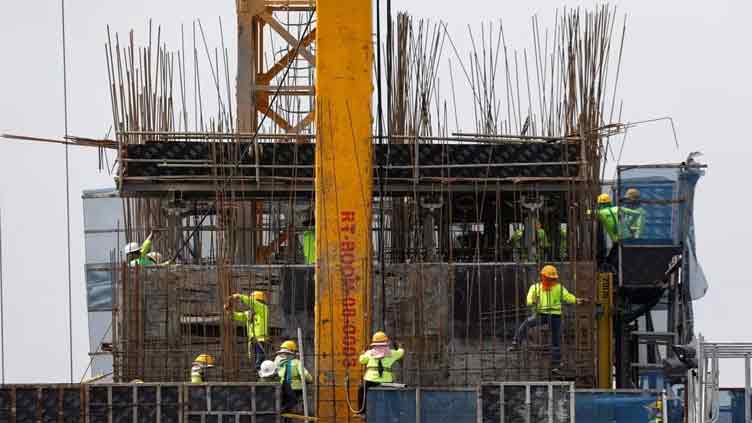Thailand plans new minimum wage hike, keeps inflation target next year

Business
The ruling party had promised a raise to 400 baht in its election manifesto
BANGKOK (Reuters) – Thailand will increase its minimum wage in January, the government said on Tuesday, confirming a previous deal while planning to raise it further in March.
A wage committee, comprised of government, employers and employee representatives, had previously agreed to increase the daily minimum wage by 2.37 per cent, effective in January, but Prime Minister Srettha Thavisin deemed the hike too low.
Srettha said the committee would meet in January to seek a further wage hike to be announced in March. "There is no need to raise wages once a year," he told reporters.
Srettha's ruling Pheu Thai party campaigned on a populist platform with a key plank of raising the daily minimum wage to 400 baht, despite concerns over competitiveness.
"Another investigation covering local wage rates and professional groups will conclude in March ... (to determine) areas and groups that can increase wages," Labour Minister Phipat Ratchakitprakarn told reporters.
The current minimum wage is 328-354 baht ($9.49 - $10.24) varying between different parts of the country with the committee agreeing to raise the pay threshold range to 330 baht to 370 baht.
Companies have warned that increasing wages at a time when borrowing costs were increasing and Southeast Asia's second-largest economy was lagging behind its regional peers could make industries less competitive.
Separately, Thailand's cabinet on Tuesday approved the central bank's headline inflation target range of 1pc to 3pc for 2024, unchanged from this year.
The announcement came after Thailand's headline inflation rate came in at -0.44pc in November, the lowest in nearly three years.
Deflationary pressures come from government policies that reduced energy prices and falling meat prices.
The inflation target, which guides monetary policy, is reviewed each year and the range of 1pc to 3pc is supportive of economic growth, finance ministry spokesman Pornchai Theeravet, who also heads the fiscal policy office, said in a statement.
The cabinet also approved a 3.48 trillion baht ($100.7 billion) draft budget bill for the 2024 fiscal year which will go to parliament next week.
The government approved reduced property fees for another year, with some transfer fees cut to 1pc from 2pc and some mortgage registration fees to 0.01pc from 1pc, Pornchai told reporters.
The reduction will cost the government 5 billion baht in lost revenue but will boost growth by a further 0.5 percentage points, he said.


